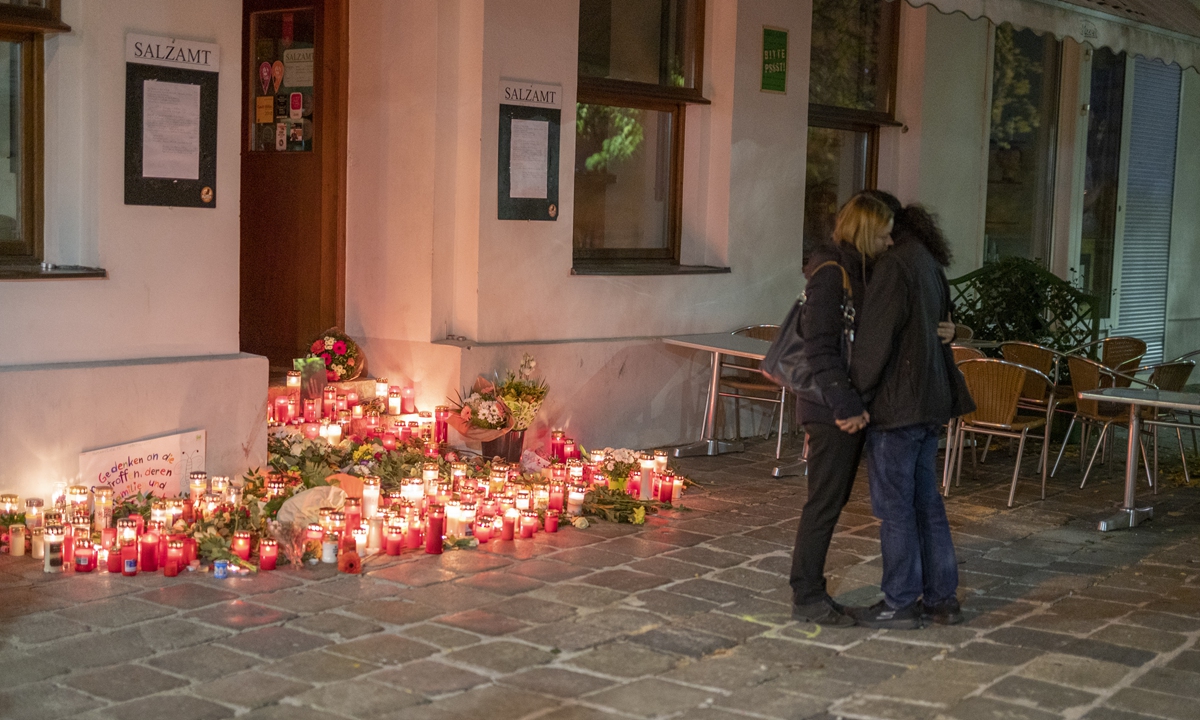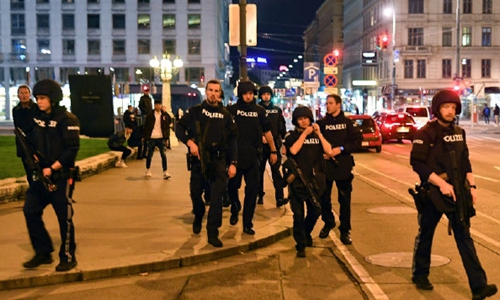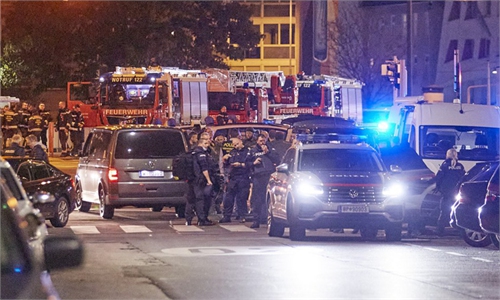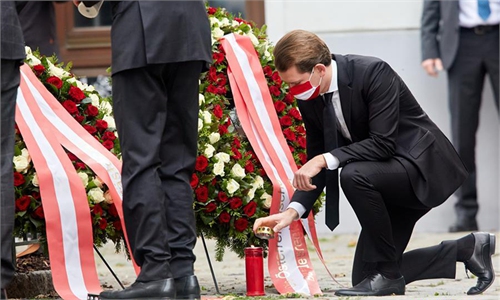Austria admits security mistakes
Slovakia had warned intelligence in Vienna of assailant

A couple is hugging in front of a restaurant, where the terrorist attack occurred, in Vienna, Austria on Wednesday. Photo: AFP
Austria acknowledged Wednesday there had been security failings leading up to the deadly gun rampage in Vienna by a convicted Islamic State (IS) sympathizer.Interior Minister Karl Nehammer said intelligence services had received a warning from neighboring Slovakia that the assailant had tried to buy ammunition, but that "a failure of communication" had followed.
The gunman, identified as 20-year-old dual Austrian-North Macedonian national Kujtim Fejzulai, was killed by police after going on a shooting spree in Vienna on Monday evening that left four people dead.
Police detained 14 people in the wake of the shooting, the first major attack in Austria for decades and the first blamed on a jihadist.
They were "aged 18 to 28, from minority communities and some aren't Austrian citizens," Nehammer said in a statement.
Police said "it's possible they supported" the gunman but their exact role remains unclear.
The authorities now said Fejzulai acted alone after initial fears that more assailants could be at large.
Fejzulai had been convicted and sentenced to 22 months in prison in April 2019 for trying to travel to Syria and join the IS group. But he was released on probation in December and had been referred to organizations specializing in deradicalization programs.
IS - which has claimed numerous attacks in Europe - said Tuesday a "soldier of the caliphate" was responsible for the shooting.
The gunman opened fire indiscriminately in the historic center of the city just hours before Austria imposed a coronavirus lockdown.
Security has been tightened in the city.
Flowers and candles were laid out at the scene of the attack, where chalk circles drawn on the ground by investigators to mark out shell casings were still visible.
But life was returning to normal - albeit under the new virus restrictions.
"We were scared by this terrorist act of course, but the city remains safe," said Peter Mensdorff Pouilly, an architect.
AFP



